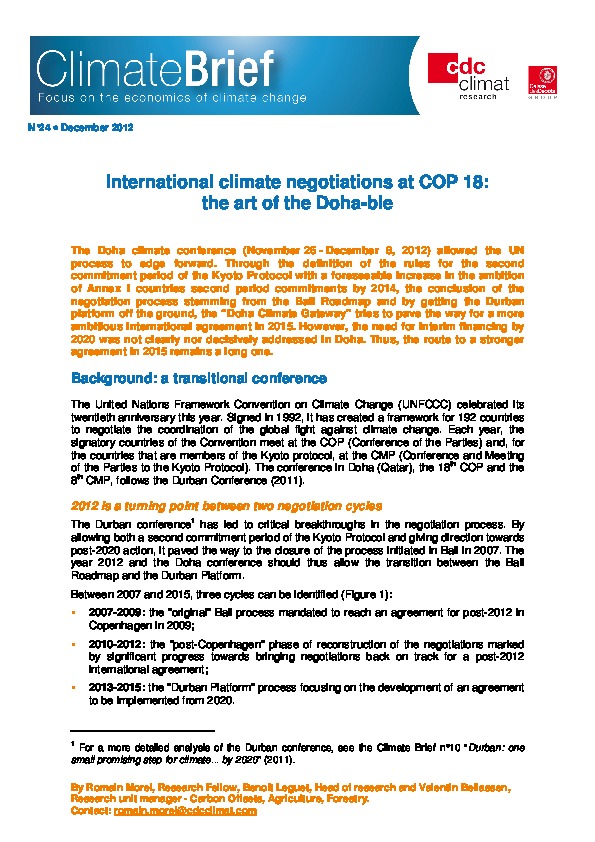International climate negotiations at COP 18: the art of the Doha-ble
By Romain Morel, Benoît Leguet and Valentin Bellassen, I4CE
The Doha climate conference (November 26 – December 8, 2012) allowed the UN process to edge forward. Through the definition of the rules for the second commitment period of the Kyoto Protocol with a foreseeable increase in the ambition of Annex I countries second period commitments by 2014, the conclusion of the negotiation process stemming from the Bali Roadmap and by getting the Durban platform off the ground, the “Doha Climate Gateway” tries to pave the way for a more ambitious international agreement in 2015. However, the need for interim financing by 2020 was not clearly nor decisively addressed in Doha. Thus, the route to a stronger agreement in 2015 remains a long one.

